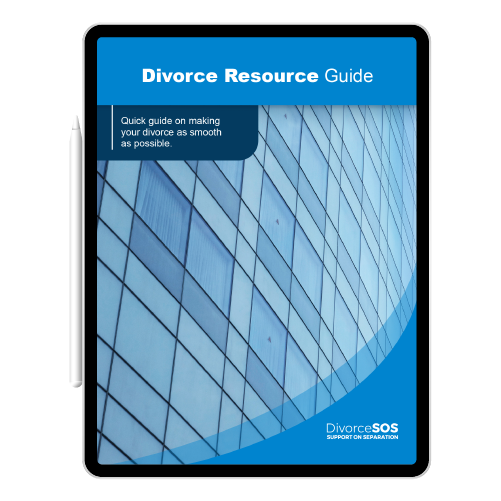Building Credit After Divorce
Divorce is as much of a financial hardship as it is an emotional one. Even once the process is complete, you may be left dealing with its effects on your credit score for months or even years to come, untangling the joint assets and debt you’ve accrued with your spouse. It’s important to remember that a judge’s ruling is not always enough to separate ownership of loans and credit cards. The divorce may be final, but joint debt is still the responsibility of both spouses unless otherwise noted by the lender. This means if one of you miss a payment, both of your scores may be negatively impacted. There are steps, however, that you can take immediately to help protect and build your individual credit after divorce.

1. Check Your Credit Report
Hover or tap to flip
Individual debts could be loans or credit cards that you opened prior to your marriage. This can also refer to debts you incurred independently after marriage unless you live in a community property state. You are solely responsible for your individual debt repayment. On the other hand, joint debts could be any loans or credit cards that you’ve acquired together with your spouse in which both parties are responsible for repayment, even after divorce. This can include mortgage and car loans. If one spouse forgets to pay, both may suffer the consequences.
2. Open New Individual Credit Accounts
Hover or tap to flip
Next, start building your individual credit by opening a new credit card in your name. This may seem like the last thing you want to do while dealing with the financial headache caused by your divorce. However, establishing your individual credit now could help you in the long-term. Typically, it’s easier to get approved for a credit card while you’re still married and have joint assets, credit cards, and loans. However, you’ll also have the opportunity to build your credit after divorce. Typical ways to do so include paying down your debt faster, increasing your credit limit, and more.
3. Close Old Joint Credit Accounts
Hover or tap to flip
Now that you’ve started building your individual credit, it’s time to close out the joint accounts you’ve identified on your credit report. Again, this includes any credit cards or loans that you’ve acquired together as a couple. Contact lenders and ask to have your joint accounts transferred into individual accounts. Most importantly, close them. This reduces the risk of acquiring new charges that both parties are responsible for.
MEET WITH US
Book a consultation to team up with a powerful and knowledgeable team in your corner.
DIVORCE REFERENCE GUIDE
Every situation is different and the way that the law is applied to a situation will depend on the particular circumstances of each case. It is important to be aware that some laws are different for married as opposed to unmarried couples.

